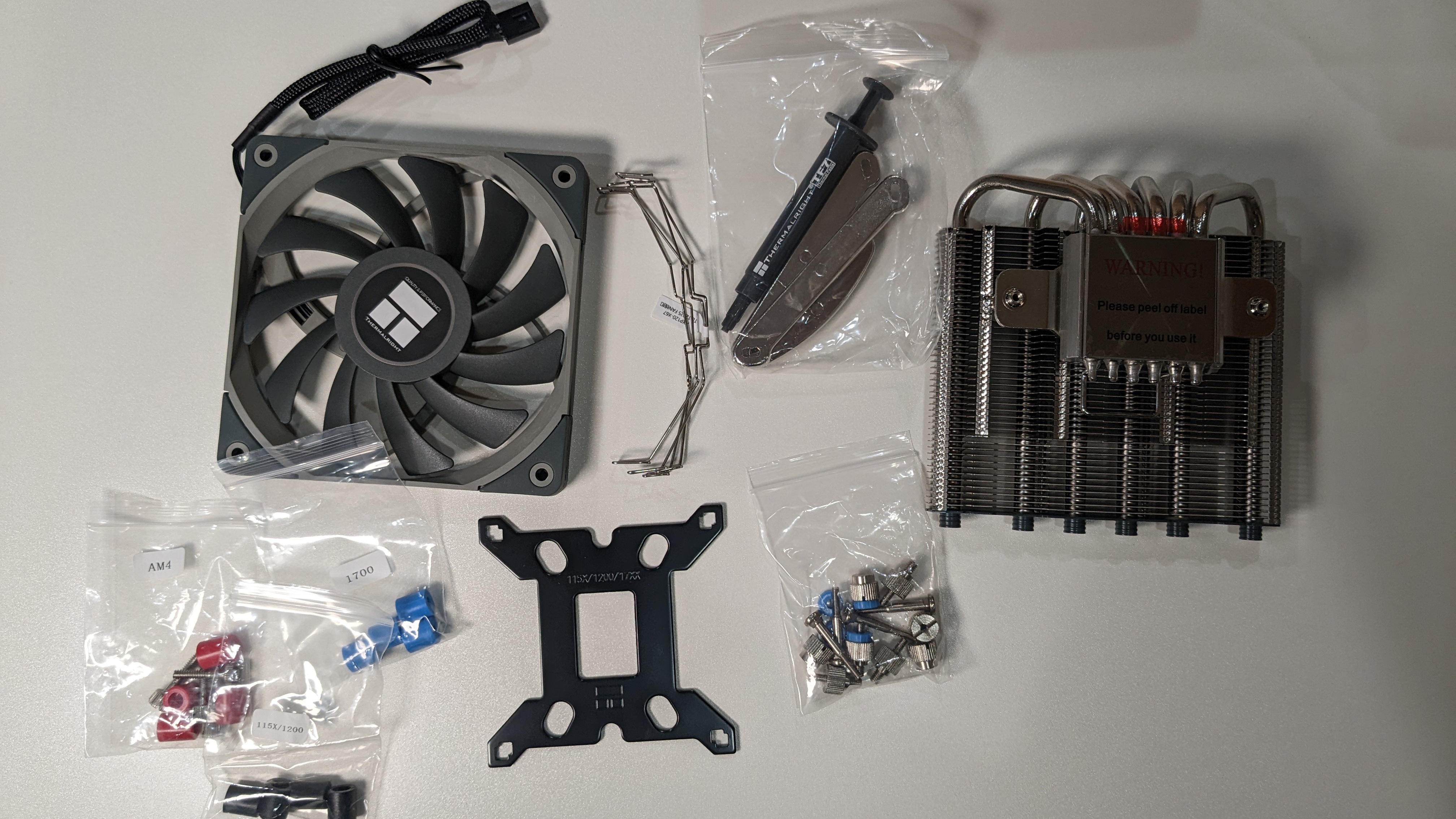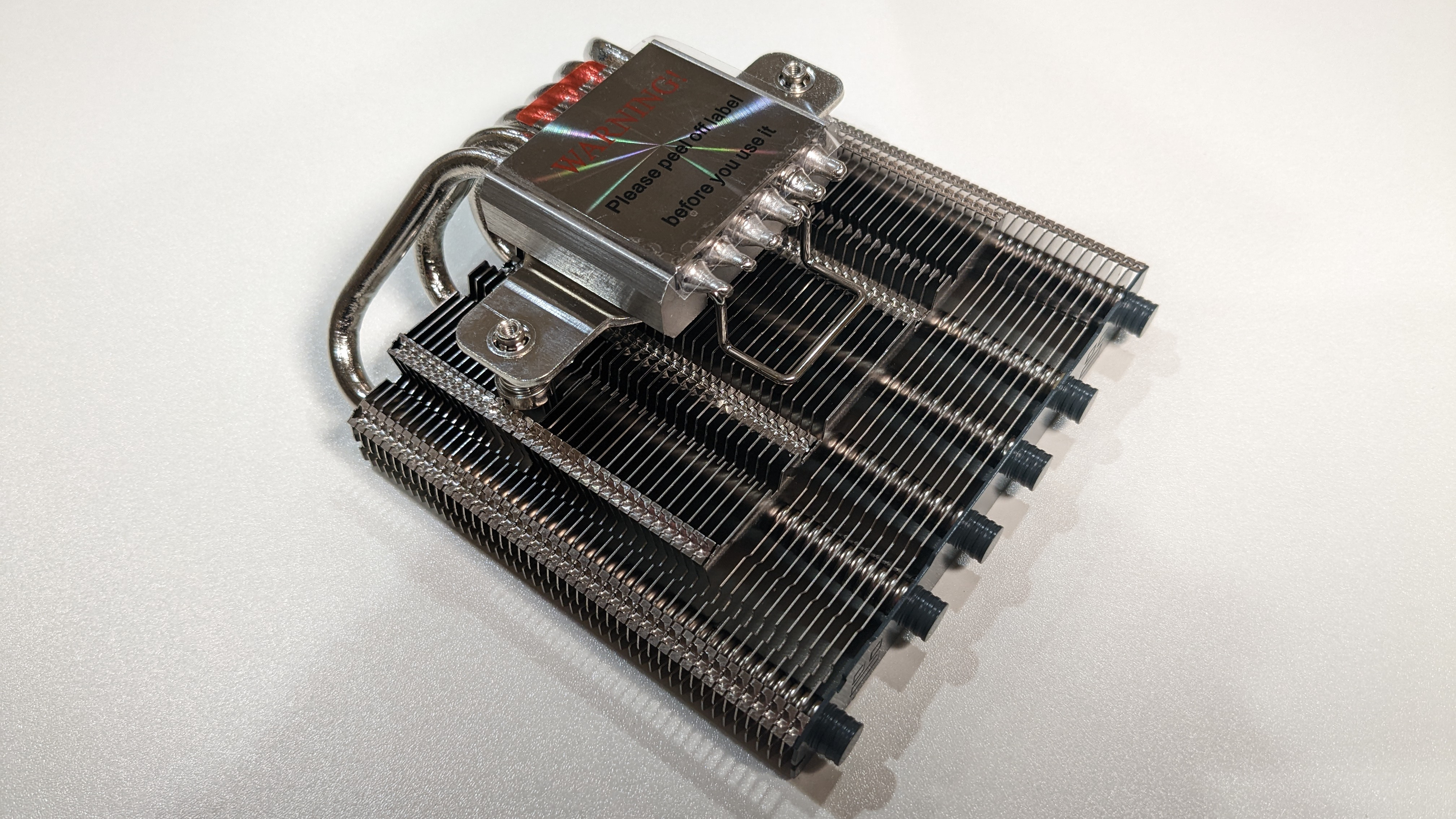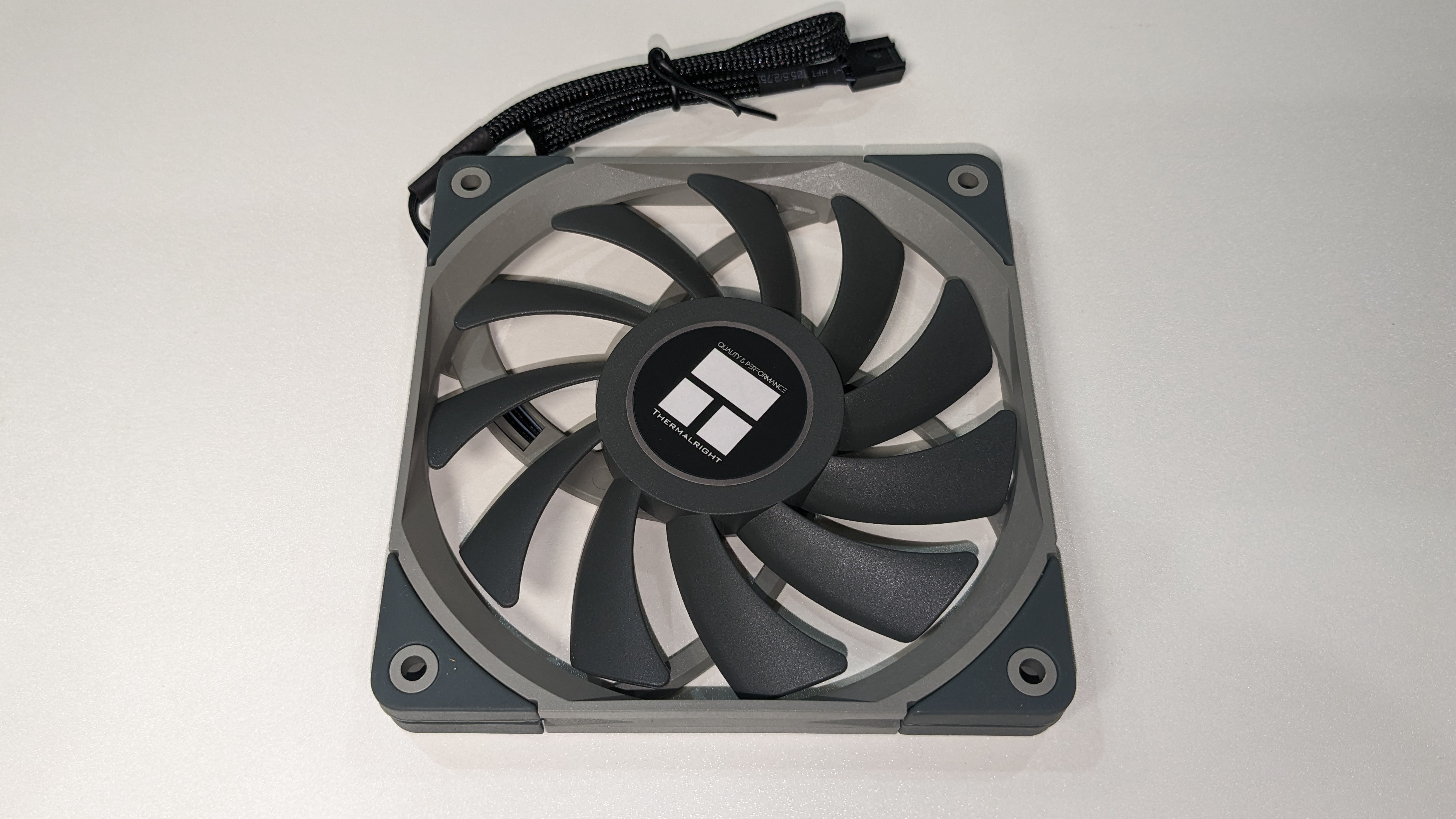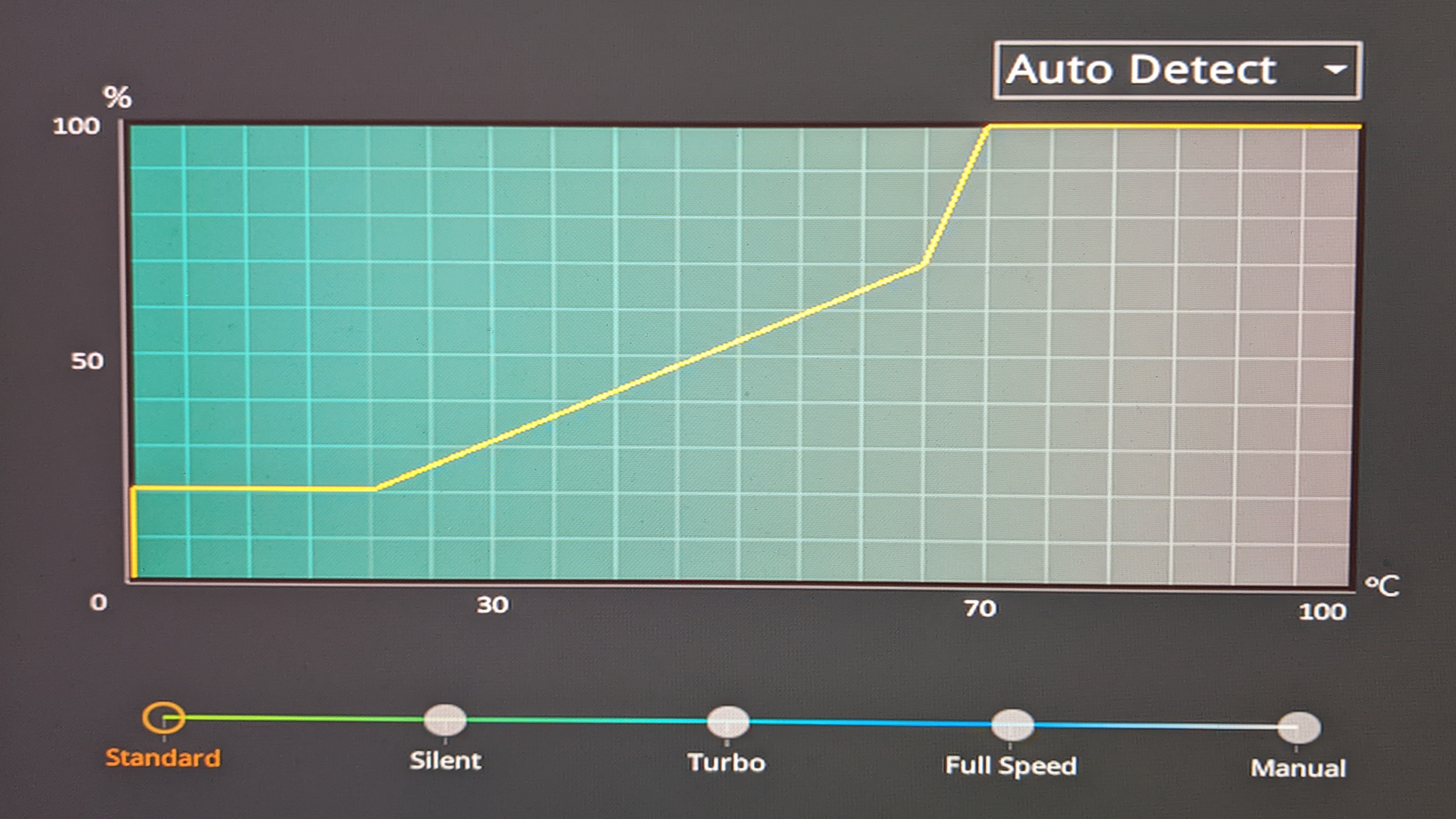Tom's Hardware Verdict
Thermalright’s AXP120-X67 runs quietly, fits the smallest SFF cases, and is capable of handling up to 200W loads with Intel’s i9-13900K.
Pros
- +
Fits even the smallest of cases
- +
Handles up to 200W loads with Intel’s i9-13900K
- +
Extremely quiet operation
Cons
- -
Loses up to 12% performance vs high-end cooling
Why you can trust Tom's Hardware
Thermalright established itself as a cooling contender in decades past with options like its all-copper SP94 cooler. The company, also known for unique products like the HR-07 memory cooler, which provided a full heatsink with two heatpipes for DDR2 RAM, and the LGA 1700 Contact Frame which we recently reviewed.
Today we’ll be looking at Thermalright’s compact AXP120-X67 SFF air cooler, giving it quite the challenge by pairing it with Intel’s i9-13900K. Will the AXP120-X67 rise to the challenge and earn a spot on our Best CPU Coolers list? We’ll have to put it through testing to find out, but first here are the specifications from Thermalright.
Cooler Specifications
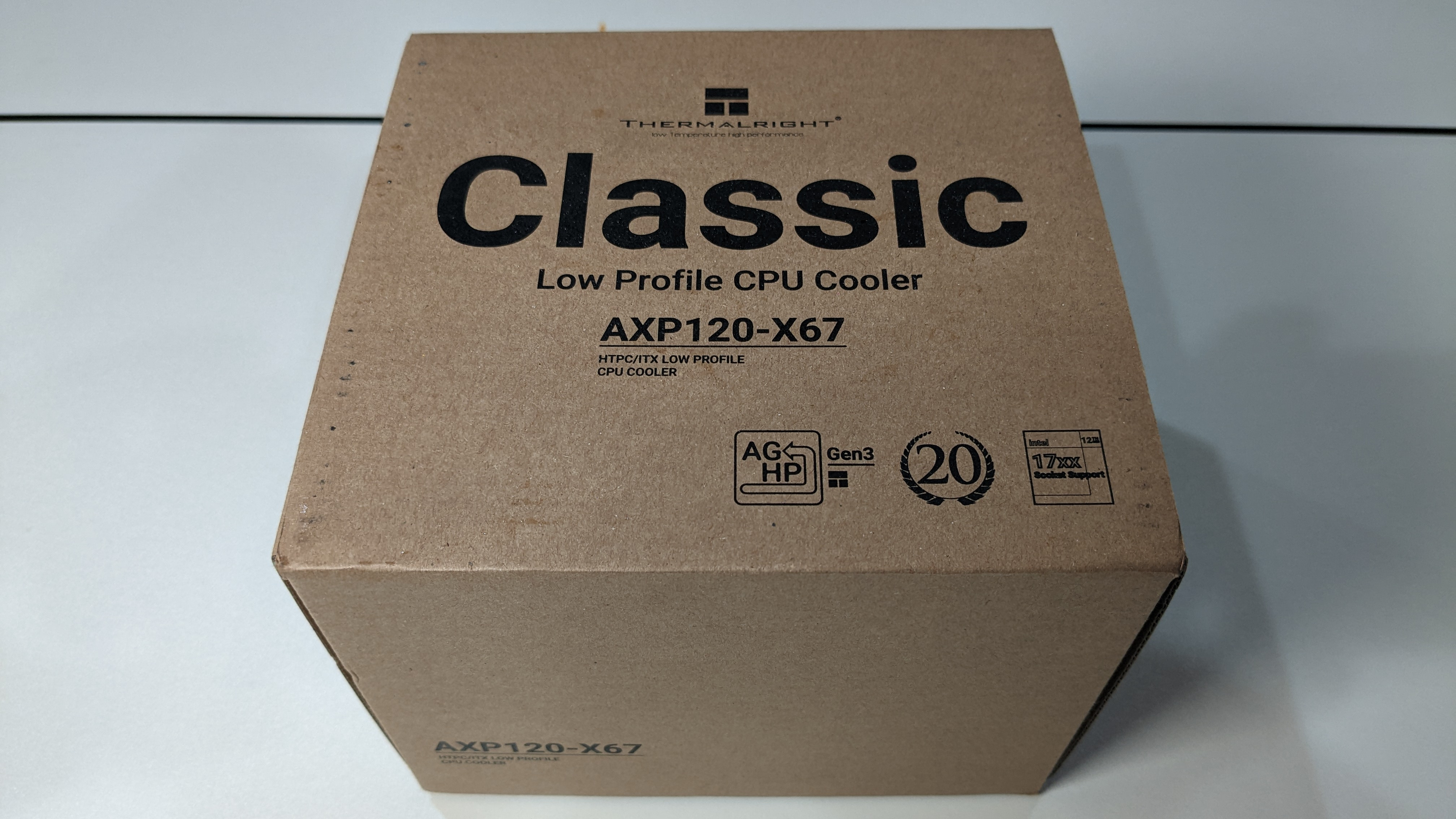
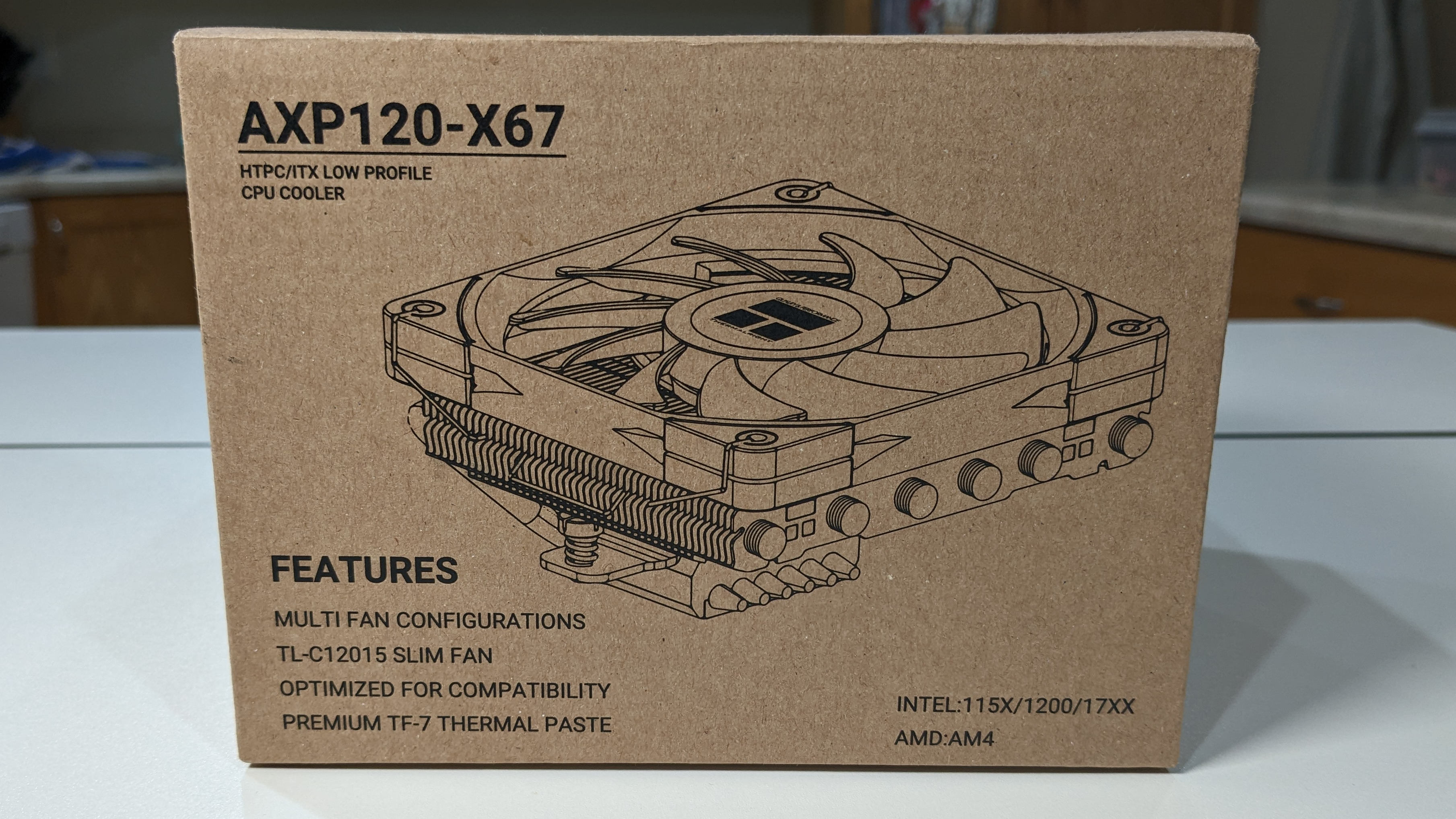
| Cooler | Thermalright AXP120-X67 |
| MSRP | $45.97 USD |
| Heatsink Dimensions | 123.5 x 120 x 52mm |
| Weight (with fan) | 490g |
| Socket Compatibility | Intel LGA 115X/1200/1700/2011/-3/2066 |
| AMD AM4/AM5 | |
| Rated Noise Level | Up to 26.1 dBA |
| Heatpipes | (x6) 6 mm heatpipes |
| Base | C1100 Pure Copper nickel plated |
| Max TDP (Our Testing) | ~200W |
Packing and Included Contents
Thermalright’s AXP120-X67 comes in a small box, with cardboard and molded foam for the protection of the inner contents.
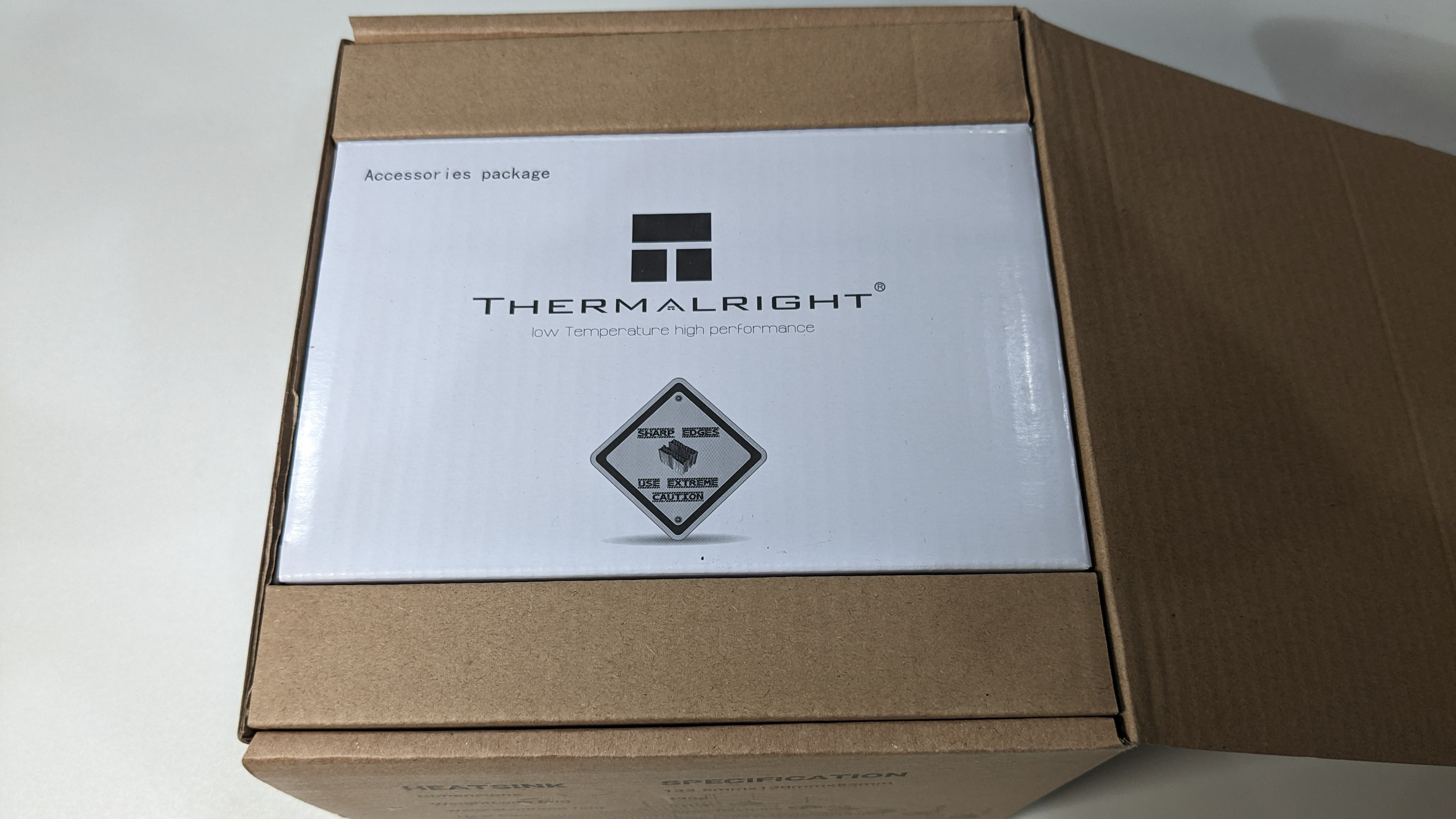
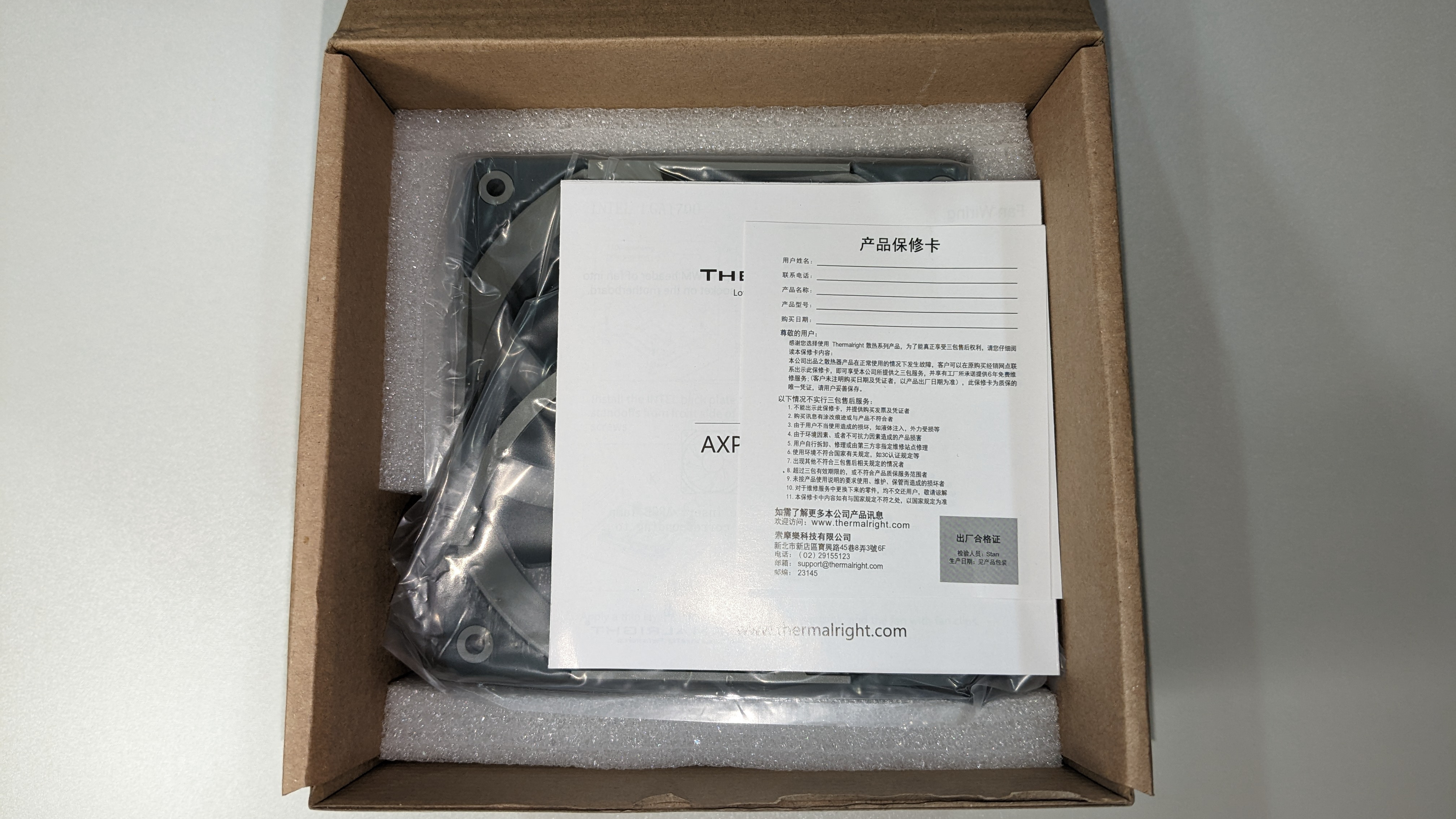
Included with the package are the following:
- SFF Heatsink
- 1x TL-C12015 fan
- Fan clips for the included fan
- Fan clips for standard 120mm fans
- Mounts for all modern CPU sockets, including AM5 & LGA1700
- A tube of TF7 thermal paste
- Manual
Features of the AXP120-X67
SFF Heatsink
The slim 2.05-inch height of the AXP120-X67 allows it to fit inside of the smallest cases, making it an appealing option for SFF builds.
TL-C12015 fan
Get Tom's Hardware's best news and in-depth reviews, straight to your inbox.
There’s more to an air cooler than just a heatsink. The fan included has a significant impact on cooling, noise levels and performance. Included with Thermalright’s AXP120-X67 is a slim TL-C12015 fan.
| Model | TL-C12015 |
| Dimensions | 120 x 120 x 15 mm |
| Fan Speed | Up to 1800 RPM ±10% |
| Air Flow | Up to 59 CFM |
| Air Pressure | Up to 1.36mm H20 |
| Noise Level | Up to 26.1 dB(A) |
| Bearing Type | S-FDB Bearing |
| Lighting | None |
Additional fan clips
Thermalright also includes fan clips for standard 120mm fans for those who want to use a stronger, full sized fan, for additional cooling performance.
Testing Methodology
While it was fairly easy with previous generations of CPUs for coolers to keep the processor well under TJ max (the maximum temperature a CPU can sustain before throttling) in demanding workloads, this is no longer realistically possible on current generation CPUs without extreme cooling (or enabling power limits).
When I began testing coolers on Intel’s i9-12900K, I found that some products that cooled the i9-10900K well struggled in some scenarios when paired with the Alder Lake CPU – and Raptor Lake is even more difficult to cool in these situations. While in the past a CPU hitting its peak temperature was cause for concern, enthusiasts are going to have to learn to accept high temperatures as “normal” while running demanding workloads with Raptor Lake and Ryzen 7000 CPUs.
These higher temperatures might cause concern for some, but there isn’t any need for worry. Modern AMD & Intel CPUs are designed to run fairly hot without any problems – up to 95 degrees Celsius for AMD Ryzen 7000 CPUs, and up to 100 degrees C for Intel’s 13900K. Similar behavior has been standard in laptops for years due to the cooling limitations there.
Furthermore, Intel’s i9-13900K supports Adaptive Boost Technology (ABT), which allows Core i9 processors to dynamically boost to higher all-core frequencies based upon available thermal headroom and electrical conditions. This allows multi core loads to operate at up to 5.5 GHz if the necessary amount of thermal dissipation is there. This feature works in a way that actively seeks high temperatures: If the chip sees that it is running underneath the 100-degree C threshold, it will increase its performance and power consumption until it reaches the safe 100 degree C limit, thus sustaining higher clocks (and providing better performance) for longer periods.
The increased cooling challenges posed by Raptor Lake means that we’ve had to change some of the ways we test coolers. Some coolers were able to pass Cinebench R23 multicore testing with Intel’s 12th Gen i9-12900K when power limits were removed, although only the strongest models were able to pass that test. Most liquid coolers and all air coolers I’ve tested “failed” that test because the CPU reached TJ max in this scenario.
With Raptor Lake’s 13900K, not a single cooler tested (at least so far) has been able to keep the CPU under TJ max in this test. We’ll compare performance instead by comparing total benchmark scores and clock speeds maintained.
I’ll be testing Intel’s i9-13900K CPU using Asus’ TUF Gaming Z690 Gaming Plus WIFI motherboard and Cooler Master’s HAF 700 Berserker computer case, with case fans limited to 35% speeds. The motherboard’s default fan curve is used for the CPU Cooler’s fans.
In addition to testing Cinebench without power limits enforced, we’ll also be showing results when the CPU’s power consumption is limited to a more reasonable 200W. We’ll also show results at 125W for those who prefer whisper-quiet cooling, at the cost of some performance. For both of these results, we’ll show traditional delta over ambient temperature results.
We’ll provide noise level measurements recorded using a PSPL25 Sound Meter for all three power levels tested to compare how much noise each cooler makes in different scenarios. We expect most coolers to run silently at 125W.
LGA1700 Socket Bending
Please note there are many factors other than the CPU cooler that can influence your cooling performance, including the case you use and the fans installed in it. A system's motherboard can also influence this, especially if it suffers from bending, which results in poor cooler contact with the CPU.
In order to prevent bending from impacting our cooling results, we’ve installed Thermalright’s LGA 1700 contact frame into our testing rig. This means that if your motherboard is affected by bending, your thermal results will be worse than those shown below. Not all motherboards are affected equally by this issue. I tested Raptor Lake CPUs in two motherboards. And while one of them showed significant thermal improvements after installing Thermalright’s LGA1700 contact frame, the other motherboard showed no difference in temperatures whatsoever. Check out our review of this contact frame for more information.
Testing Configuration
| CPU | Intel i9-13900K |
| Comparison Air Coolers Tested | DeepCool AG620, dual tower air cooler |
| Thermalright Assassin X 120 R SE, single tower air cooler | |
| Thermalright AXP120-X67, SFF air cooler | |
| Comparison AIO Coolers Tested | DeepCool LT720 (360mm) |
| Motherboard | Asus TUF Gaming Z690 Plus Wifi DDR5 |
| RAM | Crucial DDR5-4800 |
| GPU | Intel ARC A770 LE |
| Case | Cooler Master HAF 700 Berserker |
| PSU | Cooler Master XG Plus 850 Platinum PSU |
- MORE: Best CPU Coolers
- MORE: Raptor Lake All We Know
- MORE: How to check CPU Temperature

Albert Thomas is a contributor for Tom’s Hardware, primarily covering CPU cooling reviews.
-
smtrejo Awesome review, it helped me to choose this air cooler for my INtel Core i5-12400f, possibly upgrading to i7-12700k.Reply
